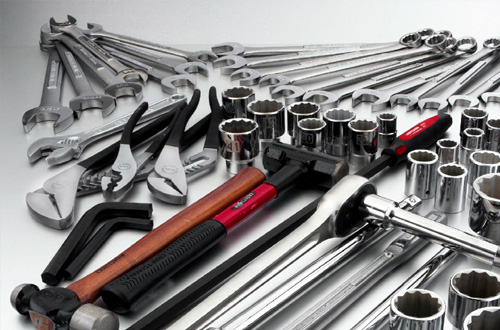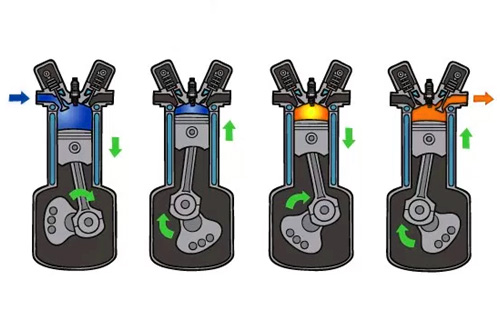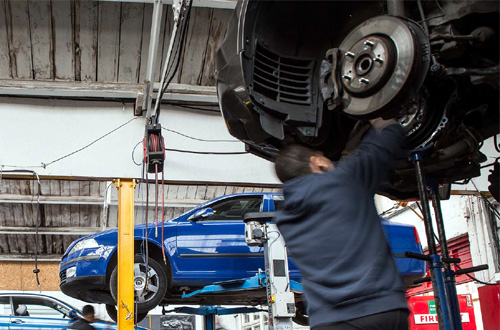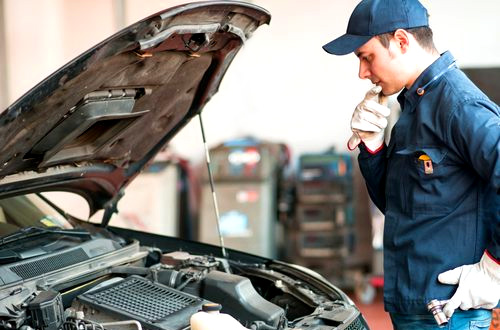
Many things of course, but here are our Top 8!

1) Know your Product
Whether you work at a dealership or an independant workshop, it’s important to be well versed in the line of vehicles you are catering for. If you happen to be from a dealership, it’s easier in the sense that you generally only have one or two makes of vehicle to focus on, however the expectation is that you will have a deep and thorough knowledge of the vehicles. For an independant, it can be a little harder. Depending on the structure of your workshop you may have to jump from a Holden to a BMW to a Volkswagen, meaning you need a diverse knowledge of different vehicle systems.

2) Punctuality
This one seems really simple, but it’s SO important. Being late to start in the morning often creates a ripple effect throughout the day. It disrupts the scheduling and flow of work and also breeds complacency among other technicians. You’ll often find you’ll be rushing jobs to try and catch up and will put your mind in a bad place, especially if you are facing a complex diagnostic job.

3) The Best Tools or the Right Tools?
If you have the correct tools, whether that be specialised tools for a certain make of vehicle or simply a solid repertoire of hand/power tools, you are more likely to produce better quality work in a shorter period of time. It also means you are less likely to break or damage things trying to substitute with incorrect tools. Plus it feels good to work with quality tools that make your life easier and also helps prevent issues like RSI (Repetitive Strain Injuries)
This doesn't mean you need to take out a loan on the tool truck, but rather be smart about what tools you decide to invest in and when.

4) Don't forget the Basics
A curse of becoming interested and skilled in diagnostics can sometimes be that we skip past the basics. We’ve known a technician to remove the dash from a vehicle due to a missing fuse. It’s not a good feeling to get tripped up by a simple issue and it often sends us on a wild goose chase. Don’t get caught out, remember to check the basics first!

5) Work Smart and Stack!
When it comes to installations or vehicle servicing, try and stack jobs so you are not backtracking or wasting time. For example, if you have to run wiring for one accessory through a vehicle, think of what else has to be run at the same time. If you’re doing a service and have to do a tyre rotation and brake bleed, knock them on the head at the same time. These things may seem obvious, but there are many examples where inefficiencies occur in workshops that can be avoided. How many times are you putting the hoist up and down during a service and is it really necessary? Have a good think about your service workflow.

6) You don’t know it all
As techs, sometimes it’s hard to admit that we don’t know everything. If you’ve done your testing and are starting to go around in circles or carry our checks and test you don’t really have a reason for doing it’s time to ask for help. Whether that be from one of the other techs in your workshop or an online community like Mechanic.com.au
There is no shame it asking for help. Another tech might have had the same problem recently and can save you some time or might simply throw a new perspective at you to generate some ideas.
Having said that, what you don’t want to be doing is hassling other people for ‘Silver Bullet’s’ when you haven’t done any testing yourself in the hope that you can jump straight to the issue. This often leads to wasted time and money.
Further to this, always keep learning. This trade is so diverse and fast paced, you need to stay ahead of the game so learn through any avenue you can. Whether that be online training, physical courses, the mechanic.com.au community or elsewhere. Soak up all the knowledge you can!

7) Don’t be Scared
Have you seen the look on some peoples faces when they open their car bonnet, take one look and just close it again? Even as professional technicians, we get that feeling too sometimes when we are presented with new or strange systems or vehicles.
This point is two part:
It’s important that we don’t get intimidated by different vehicles or new technology, this stops us from learning so it’s good to dive in to new challenges.
The caveat to that being: Do your research first. Flying blind on a system you have no understanding of it’s construction or operation can be dangerous and can lead to damaged systems as well as unrecoverable labour.
Don’t be afraid to learn, but make sure you are doing just that and not guessing!

8) Your Diagnostic Friend
Your customer can be one of your best diagnostic tools. If you’re in a setting where it is possible, always interrogate the customer for as much information as possible. Take a road test with them if you are able (and if it’s relevant of course). Try and ask closed questions that force a response like: ‘Does it do it more when the engine is hot or cold’ rather than open questions like: ‘When does it do it’
This is a good way to prevent customers serving up this info only after you have spent hours on diagnosis.
Have your say in the Mechanic.com.au Private Facebook Group (Members Only)